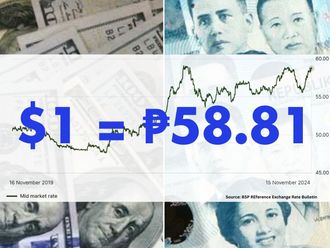The Bank of Japan may debate overhauling its asset-buying programme next week after its campaign to end deflation was undercut by government bondholders’ reluctance to sell as financial turmoil deepens.
Governor Masaaki Shirakawa and his board gather June 14-15, days before a Greek election that may determine whether the nation leaves the euro, triggering deeper European trauma. The euro crisis has already sparked a surge in demand for bonds that left the BOJ unable to meet targets for purchases twice in May.
The disruptions to the central bank’s program coincide with increasing pressure by Japanese lawmakers for Shirakawa to step up efforts to support the economy, which is forecast to slow after it strengthened last quarter. BOJ board members may extend the maturity of the debt they buy or increase purchases of riskier assets, according to Bank of America Merrill Lynch.
“Given failures in bond operations, the BOJ may extend the maturity of bonds as soon as this month,” said Masayuki Kichikawa, Tokyo-based chief economist for the bank. “If not this time, they will have to do it this year at least.”
The board in April extended the maturity of bonds it buys to three years from two years, an echo of the US Federal Reserve program known as Operation Twist which replaced purchases of short-term debt with longer-maturity Treasuries in an effort to pull down long-run borrowing costs.
Purchases Fail
Even with the shift, the BOJ wasn’t able to find enough of the one- and two-year notes it sought to buy on May 16, the first failure since setting up its asset-purchase program in October 2010. Two days later, it didn’t attract enough offers for a regular bond-buying operation known as a Rinban, which hasn’t happened since 2006.
The disruptions reflected a flight from riskier assets such as stocks amid concern the euro-region’s crisis will worsen and hobble global growth. In Japan, yields on 10-year securities touched 0.79 percent this week, the lowest since 2003, while the Nikkei 225 Stock Average has tumbled almost 10 percent in the past three months.
Policy makers round the world are stepping up efforts in response to a souring outlook, with China yesterday lowering interest rates for the first time since 2008, following a reduction by Brazil last week. Fed Vice Chairman Janet Yellen said two days ago the US economy may warrant more stimulus.
Growth to Slow
In Japan, economic growth may slow by more than half from the first quarter, when gross domestic product rose 4.7 percent from the previous three months at an annualised pace. Bloomberg News surveys of economists indicate GDP gains of 2 percent this quarter and 1.6 percent in the final three months of 2012.
Foreign-exchange appreciation, driven by haven demand for the yen, has threatened to undermine export growth, while last quarter’s bump from post-earthquake reconstruction is projected to fade through the year. The yen traded at 79.71 as of 9:12 am in Tokyo, up 5.6 percent from the year’s low of 84.18 in March.
With fiscal stimulus limited by Japan’s public debt, the world’s largest, lawmakers have turned to the central bank to support expansion and end deflation that erodes corporate profits.
A group of ruling Democratic Party of Japan members last week released a proposal to change the law overseeing the BOJ, empowering the government to dismiss BOJ board members if consumer prices rise significantly less than the central bank’s target. While the BOJ has set 1 percent as its goal for inflation, its most recent economic projections show that won’t be reached at least through the fiscal year ending in March 2014.
BOJ Law
“Their framework to beat deflation is terrible,” DPJ lawmaker Sumio Mabuchi, head of a group that has called on the BOJ to set an inflation target of 2 percent, said on May 23 in parliament. “We need to create a new structure.”
Seiji Maehara, the DPJ’s policy chief, yesterday said that while he agreed on the need for close cooperation between the BOJ and the government in dealing with challenges such as the yen’s rise, an independent central bank is important and he doesn’t favour amending the law.
Policy makers may opt to raise the limit for purchases of exchange-traded funds and Japanese Real Estate Investment Trusts, Morgan Stanley analysts wrote in a note this week. While the bank predicts officials will boost their 40 trillion yen ($503 billion) asset-purchase program by 5 trillion yen in July, the risk of a move this month is increasing.
‘Frontloading’ Policy
“Chances are now rising for the frontloading of the timing into the June monetary-policy meeting,” Morgan Stanley economists led by Robert Feldman in Tokyo wrote in a June 6 report. “Foreign economic turmoil has weakened Japan’s recovery prospects.”
The central bank has sought to play down expectations of continued expansion in their asset purchases, which are the main policy tool as the benchmark interest rate is near zero. Minutes of the April 27 meeting released last week showed that “members made note of some misunderstanding that the bank would continue to increase the size of its program in an automatic manner.”
Business leaders have for their part called for greater policy response. Hiromasa Yonekura, chairman of Keidanren, the nation’s largest business lobby, said June 4 the yen is too strong for companies to cope with and urged both the BOJ and government be flexible in considering measures to address it.












